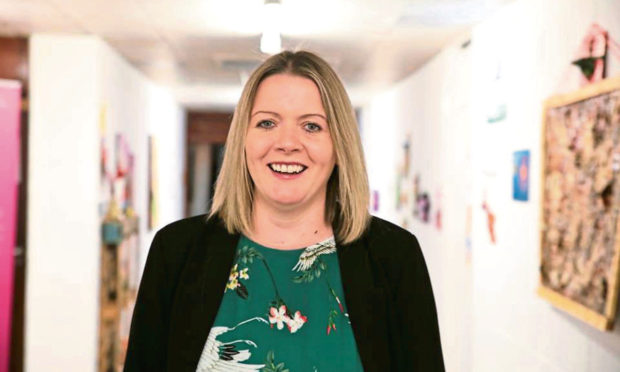Charities and social enterprises that want to make a difference in society need a sustainable business model.
That’s the view of Kirsty Thomson, the founder and chief executive of The Circle, which specialises in supporting ‘more than profit’ organisations.
As someone who has helped charities and social enterprises raise more than £13 million in funding, she is frequently approached by groups whose income stream is about to run out.
Ms Thomson believes groups shouldn’t have a business model that relies on one funding source and practices what she preaches with The Circle, which has several income streams.
“Often people will come in and say we’re running out of funding or where can we access it,” she said.
“Going from funding stream to funding stream is a challenge and it ends up people are not running their business but just pursuing funding and that’s not sustainable.
“There’s got to be a business model there.”
The Circle operates from a substantial building in Staffa Place where it rents units to 14 tenants, including major Scottish care charity Cornerstone. As part of the rent tenants are able to access eight hours a year of free consultation.
The group makes further income from renting meeting rooms, its café, which formed to give employment skills to people from care backgrounds, and its recently established training academy.
“I sometimes think people think we’re a little hub but we are occupying a 30,000 sq ft building,” Ms Thomson added.
“We are much bigger and more commercial than people realise.
“There’s no place like this in Dundee – we have groups here ranging from a wrestling group alongside a national charity like Cornerstone downstairs mixed with Slimming World consultants.
“That mix is very unusual and it’s part of what makes us unique but what pulls us together is a common goal to make a difference to people’s lives.”
Ms Thomson said The Circle’s training academy, a 12-week training programme for business, makes group think more about how they are funded.
She said there was now fierce competition for grants and so charities should look at how they can raise their own income.
“There is a big pool competing for the same funds. You need to diversify how you make your money,” she said.
“Charities and social enterprises can trade and that’s why our academy programme is important.
“Generally people are focused on delivering on their outputs to make a benefit to society and aren’t as focused on the money side.
“What we are trying to do is flip that on its head and say without financial stability how can you do good?
“Groups should look at fundraising income, corporate sponsorship and events.
“They should also look at if they can charge for the service they are offering and if they are charging enough.”
rmclaren@thecourier.co.uk
